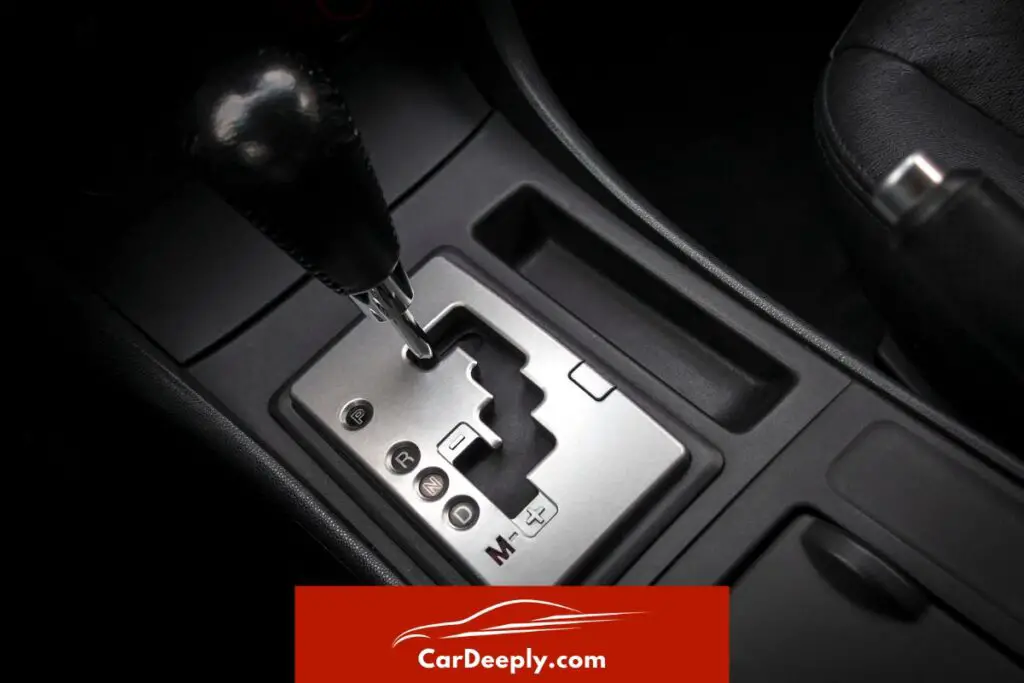Experiencing your car vibrating in drive but not neutral can be puzzling and frustrating. This comprehensive guide is designed to help you understand and solve this problem, saving you from potentially costly mistakes.
By delving into this article, you’ll benefit from the following:
- Identifying common causes.
- Practical solutions to try.
- Tips for professional help.
Don’t let this issue keep you on the edge. Read on to gain valuable insights and regain your smooth driving experience.
Advertising links are marked with *. We receive a small commission on sales, nothing changes for you.
Key Takeaways

- Car vibration in drive mode can be due to various issues, including transmission problems and damaged engine mounts.
- Common causes include faulty CV joints, unbalanced tires, and engine misfires.
- Diagnosing the problem involves checking engine mounts, transmission fluid, and spark plugs.
- If the car continues to vibrate, it’s time to consult a professional mechanic.
- Regular maintenance and timely repairs can help prevent car vibrations.
Why Does a Car Vibrate in Drive but Not in Neutral?
When cruising the road, the last thing you want is your car shaking like a washing machine.
But why does this happen?
It’s all about the transmission and engine mounts.
The transmission is the heart of your car’s drivetrain. It’s responsible for transferring the engine’s power to the wheels. When you shift into drive, the transmission engages, and the engine works harder. If this system has a problem, you might feel your car vibrating.
Engine mounts, on the other hand, are like the cushions of your car. They keep the engine in place and absorb its vibrations. If worn out or damaged, they can’t do their job properly, and you’ll feel those engine vibrations right in the driver’s seat.
Common Causes of Car Vibration in Drive Mode
Now that we’ve got the basics down let’s dive into the nitty-gritty. Here are some common culprits behind your car’s unwanted shake, rattle, and roll.
Worn-out or Damaged Engine Mounts
Engine mounts have a tough job. They must hold the engine—your car’s heaviest component—in place while absorbing its vibrations. Over time, they can wear out or get damaged.
When this happens, they also can’t absorb vibrations, and your car might start to shake when it’s in drive.
Faulty or Damaged CV Joints
CV joints, or constant velocity joints, are part of your car’s drivetrain. They transfer power from the transmission to the wheels at a constant speed, no matter how your vehicle moves. If damaged, they can cause your car to vibrate in drive.
Transmission Problems
The transmission is a complex piece of machinery. If it’s not working properly, it can cause many problems, including car vibration. This could be due to low transmission fluid, a worn-out clutch, or other issues.
Malfunctioning Torque Converter
The torque converter is a type of fluid coupling that transfers rotating power from the engine to the transmission. If it’s malfunctioning, it can cause your car to vibrate in drive.
Unbalanced Tires
Unbalanced tires can cause your car to vibrate at certain speeds. This is because the weight of the tires isn’t evenly distributed, which can cause them to wobble or bounce.
Worn-out Suspension Components
The suspension system is what gives your car a smooth ride. If its components are worn out, they can’t absorb road shocks as well, leading to a rough ride and possible car vibration.
Clogged Fuel Filter
A clogged fuel filter can cause your engine to misfire, leading to car vibration. The fuel filter keeps dirt and debris out of your engine. If it’s clogged, your engine can’t get the fuel it needs to run smoothly.
Faulty Ignition System
The ignition system is what starts your car. If faulty, it can cause your engine to misfire, leading to car vibration.
Dirty or Worn Spark Plugs
Spark plugs are responsible for igniting the fuel in your engine. If they’re dirty or worn out, they can cause your engine to misfire, leading to car vibration.
Engine Misfire
An engine misfire can cause your car to vibrate. This is because when an engine misfires, one of its cylinders isn’t firing properly, which can throw off the engine’s balance and cause it to shake.
How to Diagnose and Fix the Problem
Alright, you’ve got a good handle on why your car might be shaking in drive. Now, let’s roll up our sleeves and fix it. Here’s a step-by-step guide to diagnosing and solving the problem.
Checking Engine Mounts
Start by checking the engine mounts. Look for signs of wear or damage, like cracks or breaks. If you see any, it’s time to replace them. This job is best left to a professional, as it involves lifting the engine.
Checking Transmission Fluid
Next, check the transmission fluid. If it’s low, it could be causing your car to vibrate.
To check it:
- Park your vehicle on a level surface and let the engine run.
- Pull out the dipstick, wipe it clean, and reinsert it.
- Pull it out again and check the level. If it’s low, add more fluid.
Checking Spark Plugs
Spark plugs can cause your car to vibrate if they’re dirty or worn out. To check them, you’ll need to remove them from the engine. Look for signs of wear, like a worn-out electrode or a cracked insulator. If they’re dirty, you can clean them. If they’re worn out, you’ll need to replace them.
Balancing Tires
Unbalanced tires can cause your car to vibrate. Take your vehicle for a drive to check if your tires are balanced. If it vibrates at certain speeds, your tires might be unbalanced. You’ll need to take your car to a mechanic or tire shop to fix this.
When to Consult a Mechanic
If you’ve checked everything and your car is still vibrating, it’s time to consult a mechanic. They have the tools and expertise to diagnose and fix the problem. Remember, it’s always better to be safe than sorry regarding car repairs.
Preventive Measures to Avoid Car Vibration in Drive Mode
Prevention is always better than cure. Here are some tips to help you avoid car vibrations in the future.
- Regular Maintenance: Keep your car in top shape by getting regular maintenance. This includes oil changes, tire rotations, and checking the transmission fluid.
- Importance of Timely Repairs: If you notice a problem with your car, don’t ignore it. Get it fixed as soon as possible to prevent further damage.
Frequently Asked Questions
Can a car vibrate due to a faulty exhaust system?
Yes, a faulty exhaust system can cause your car to vibrate. If the exhaust pipe or muffler is damaged, it can cause the exhaust to leak, which can lead to vibrations. Regular inspections and maintenance can help prevent this issue.
How does weather affect car vibrations?
Extreme weather conditions can affect various components of your car, potentially leading to vibrations. For instance, cold weather can thicken your transmission fluid, affecting its flow and potentially causing vibrations. Regular car maintenance is crucial to prevent such issues.
Can low-quality fuel cause my car to vibrate?
Low-quality fuel can lead to engine misfires, which can cause your car to vibrate. Always ensure you’re using the right fuel type for your vehicle, and consider using fuel from reputable sources.
Does driving style influence car vibrations?
Aggressive driving can put extra stress on your car’s components, potentially leading to wear and tear that results in vibrations. Adopting a smoother driving style can help prevent this issue.
Can regular tire rotation help prevent car vibrations?
Regular tire rotation ensures even tire wear, preventing unbalanced tires and the resulting vibrations. It’s generally recommended to rotate your tires every 5,000 to 7,500 miles.
Conclusion
Car vibration in drive but not in neutral can be a frustrating problem. But with a little knowledge and some elbow grease, you can diagnose and fix the problem. Regular maintenance and timely repairs are key to keeping your car running smoothly.
So, keep your vehicle in top shape and enjoy a smooth, vibration-free ride.

Sebastian loves convertibles and drove a BMW 335i for a long time (325 hp is just a dream). Today, with two children, he is more concerned with SUVs and family-friendly vehicles. In addition to an Audi A4 Avant, he also drives a Cupra Formentor VZ – even as a family man, you can’t do without speed. Get to know Sebastian better and visit the About Us page.
Advertising links are marked with *. We receive a small commission on sales, nothing changes for you.
